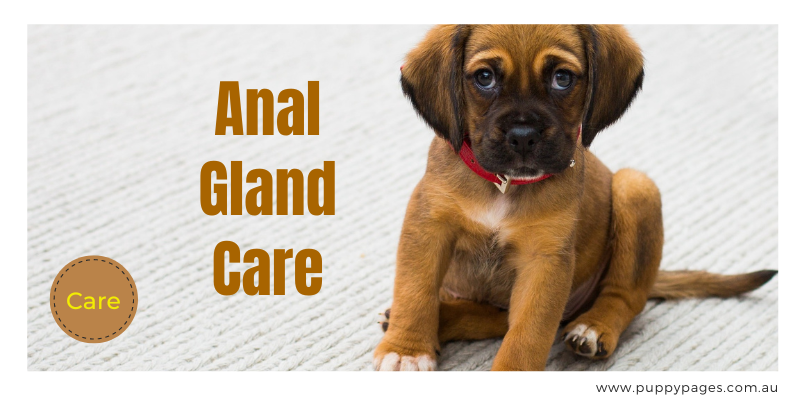
Anal gland care is an important aspect of maintaining your dog’s health and comfort. Anal glands, also known as anal sacs, are small glands located on either side of a dog’s anus. These glands produce a smelly substance that is normally expelled during bowel movements. However, sometimes these glands can become impacted or infected, leading to discomfort, pain, and potential health issues for your dog. Here are some tips for caring for your dog’s anal glands:
- Regular Vet Checkups: Your veterinarian can manually express your dog’s anal glands if necessary during routine checkups. They can also check for any signs of impaction, infection, or other issues.
- Diet and Fiber: A diet rich in fiber can help promote regular bowel movements, which can aid in naturally expressing the anal glands. Consult with your veterinarian about the best diet for your dog’s specific needs.
- Monitor Symptoms: Watch out for signs of anal gland problems, including scooting on the floor, licking or biting at the anus, foul odor around the rear end, swelling, or discharge. If you notice any of these symptoms, it’s essential to consult with your vet promptly.
- Regular Gland Expression: Some dogs may require manual expression of their anal glands if they are not being emptied naturally during bowel movements. This can be done by a professional groomer or veterinarian, but it’s essential to learn the proper technique from a trained individual before attempting it yourself to avoid injuring your dog.
- Hygiene: Keeping the area around your dog’s anus clean can help prevent infections and discomfort. You can gently clean the area with a pet-safe wipe or warm water if necessary.
- Consult with a Professional: If you’re unsure about how to care for your dog’s anal glands or if you suspect there may be a problem, it’s best to consult with a veterinarian. They can provide guidance on proper care and treatment options if needed.
- Avoid Overexpression: Overexpression of the anal glands can lead to irritation and other issues. It’s essential to follow your veterinarian’s recommendations for how often your dog’s glands should be expressed.
By following these tips and staying attentive to your dog’s needs, you can help ensure that their anal glands stay healthy and free from discomfort.
The information on PuppyPages website is not meant to replace first hand treatment of your dog by a professional vet. Always consult your vet for medical and health care advice. You should not rely on any of the information on this website for medical diagnosis, treatment options or other health care decisions about your pet. When possible we have articles fact checked by experienced Vets and Vet Nurses. Read full Disclaimer here
